Kalapuya Cultural Project and Wetlands Preservation
We recognize the First Peoples of the region and the sustenance that the land provides through seasonal round practices.
“Willamette Wetlands of the Kalapuya,” is a mural created by a collaboration of Beyond Toxics, Friendly Area Neighbors Equity Action Team, Confederated Tribes of the Grand Ronde, Kalapuya descendants, City of Eugene's Human Rights and Neighborhood Involvement, and City of Eugene Parks and Open Space. The mural illustrates a Kalapuya storyteller speaking of her people and their ancient and contemporary uses of native plants for food, medicine and spiritual observances through the annual seasonal round in the traditional manner still practiced today.
The mural is located on the east wall of the Dr. Edwin Coleman Jr. Community Center that houses the Boys & Girls Club of Emerald Valley. The building was renamed for Dr. Coleman in honor of his life and legacy as a University of Oregon professor, musician, and strong advocate for civil and human rights. These prior murals, sponsored by Friendly Area Neighbors Equity Action Team and the City of Eugene, feature visual statements on inclusion and social justice. This newest mural on the Coleman Center reaches back into history to commemorate the Kalapuya presence on this land prior to European pioneers.
Please take time to visit the Willamette Wetlands of the Kalapuya mural (located on the east side of the Boys and Girls Club) on Indigenous Peoples' Day (or any day) to experience this remarkable work of art in person!
Willamette Wetlands of the Kalapuya: A New Mural and Educational Project (PDF),
a detailed mural guide written by Susan Applegate, Mural Artist
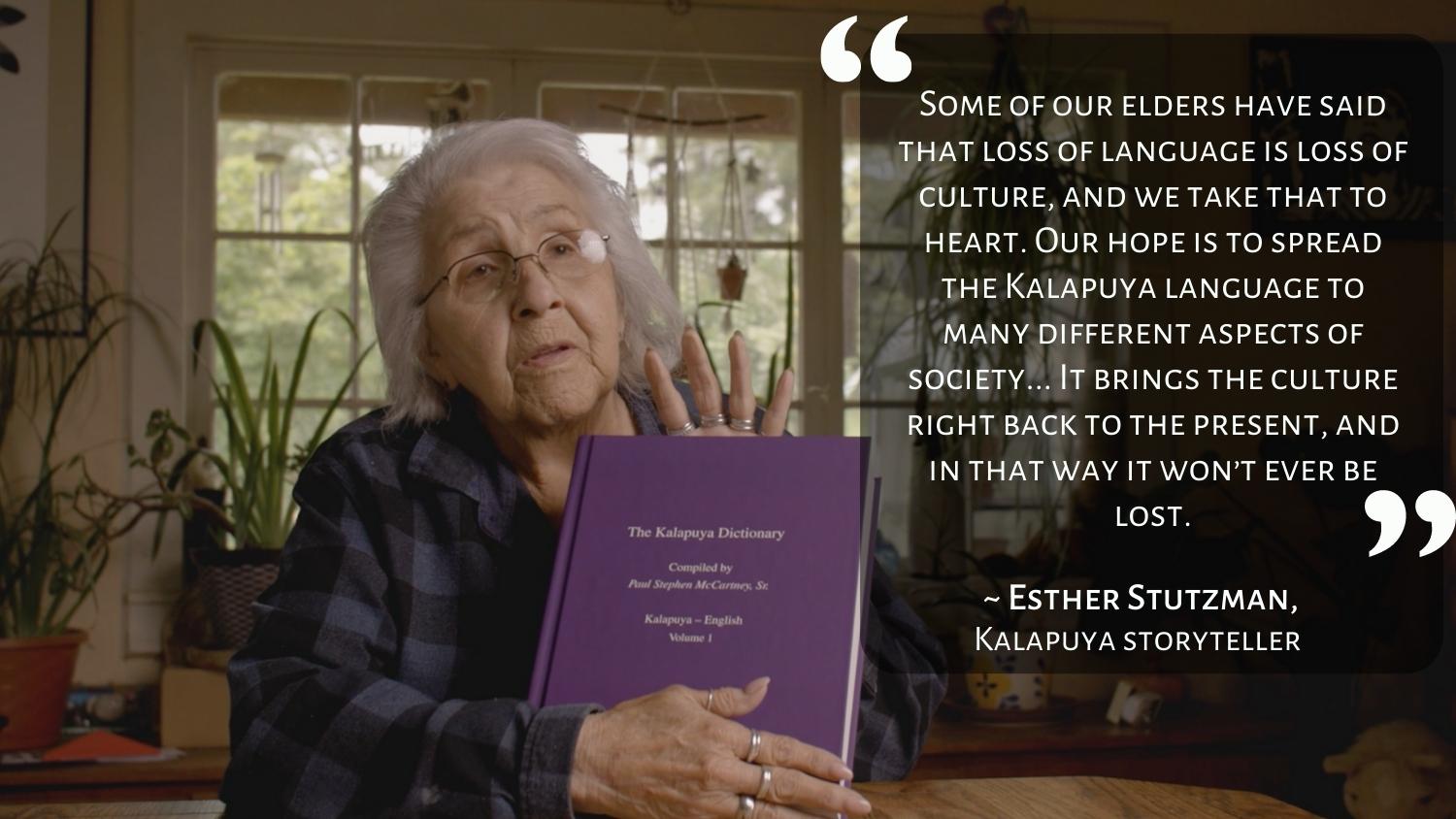
This mural is part of a larger project called the “Kalapuya Cultural Project and Wetlands Preservation” sponsored by Beyond Toxics and Friendly Area Neighbors Equity Action Team. The project includes an informational kiosk, this web resource, environmental and cultural curriculum resources, and ongoing enhancement of the park wetlands to preserve and expand the presence of the significant native plants within these sites.
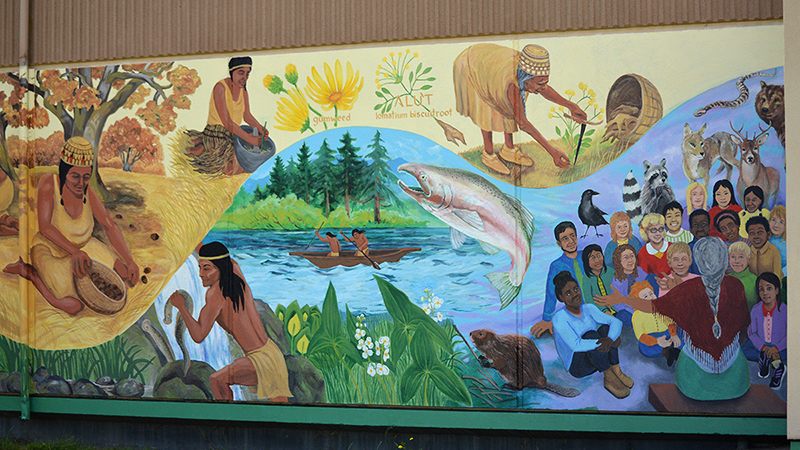
THE MURAL GUIDE
The Willamette Valley was once an open landscape, home to vast communities of flowering plants. A mosaic of species carpeted the lower elevations according to soil type and moisture retention. The braiding, meandering, flows of the Willamette River created significant wetlands that provided natural flood control and a resource-rich environment. The wet prairie landscape in Eugene’s Westmoreland Park is a small but important remnant. Some of the plants that provided food and medicine for the indigenous Kalapuya tribes are present in this park.
Please take time to visit the Willamette Wetlands of the Kalapuya mural (located on the east side of the Coleman Community Center in Westmoreland Park) to experience this remarkable work of art in person!
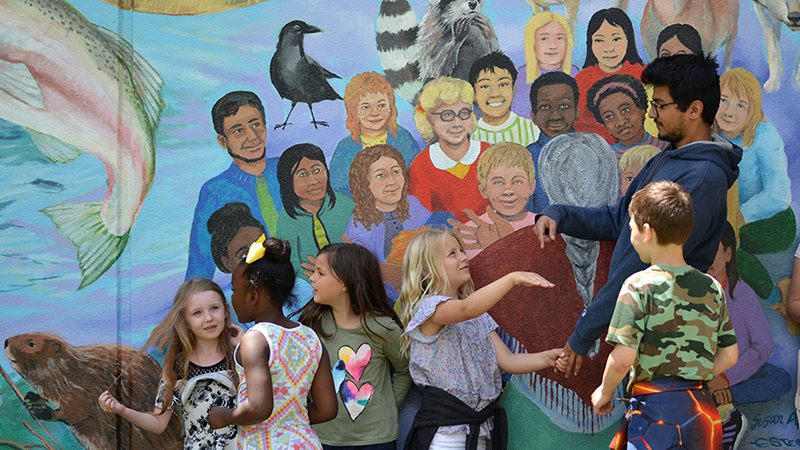
YOUTH EDUCATION CURRICULUM
Educators and parents! Beyond Toxics has created a curriculum for kids to learn about the Kalapuya people, the original inhabitants of this area of the Willamette Valley. Our curriculum is centered upon the mural, The Willamette Wetlands of the Kalapuya, with fun activities, featuring the native plants and animals that played a significant role in the lifeways of the Kalapuya. The material also includes connections to climate science and public health.
Learn more: Download lessons and activity sheets (PDF)
When visiting the mural and the nearby wetlands, be sure to download the Mural Guide which provides a section-by-section explanation of the themes of the 66 ft. wide mural at Westmoreland Park.
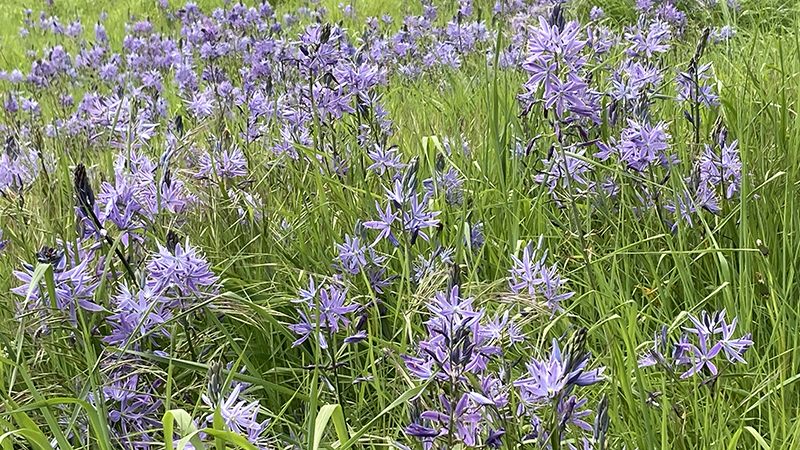
WETLAND PLANTS
The mural features the wetland plants listed below, considered important to the Kalapuya people thoughout past and present times. Kalapuyan names in the Santiam dialect are noted in bold font and scientific names are italicized.
Common Camas | Andip – Camassia quamash and Camasia leichtlinii;
Barestem Biscuitroot | Alu’t - Lomatium nudicaule
Tarweed | Tukwa - Madia sp.
Narrowleaf Mule’s Ears | Uamelk Tepok - Wyethia angustifolia
Cut-leaf microseris or commonly called Silver Puffs - Microseria laciniata
Willamette Valley gumweed - Grindelia integrifolia
See more about the Kalapuya Culture and Wetland Plants kiosk (PDF)

MURAL CREATIVE TEAM
The creative team includes:
Susan Applegate, Mural Designer, Artist and Painter
Esther Stutzman, Kalapuya Descendent and Project Consultant
Esteban Camacho Steffensen, Muralist
Pam Wooddell, Painter
Nancy Bray, Friendly Area Neighbors Equity Action Team Chairperson
Jennifer Eisele, Beyond Toxics Pesticides Project Manager
Lisa Arkin, Beyond Toxics Executive Director
Gabrielle Bird, Wetlands Plants Artist
Featured Speakers & Performances (Program from the July 9, 2022 Kalapuya Mural Dedication Ceremony) - PDF
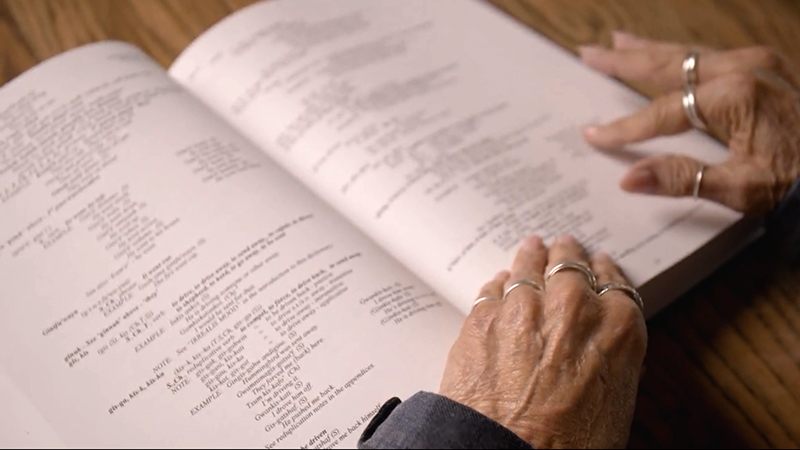
RESOURCES/NEWS
Explore more resources about the history of the Kalapuya and their language and culture, as well as the latest related news about the mural and activists who made it happen.
* The project is supported by grants from the City of Eugene Office of Human Rights and Neighborhoods, Gray Family Fund and Spirit Mountain Community Fund.
Thank you to our co-collaborators and partners in this project:
Beyond Toxics (project lead), Friendly Area Neighborhood Equity Action Team, City of Eugene Parks and Open Space, the Confederated Tribes of Grand Ronde, and the Boys & Girls Club of Emerald Valley.
Thanks also to our business sponsors:
Rainbow Valley Design & Construction, Café Mam, WildCraft Cider Works, GloryBee, Farmers Union Coffee Roasters, Garden Fever!

